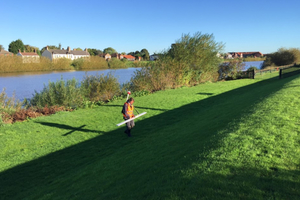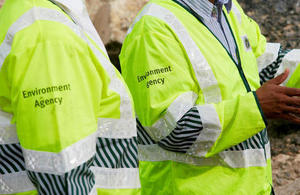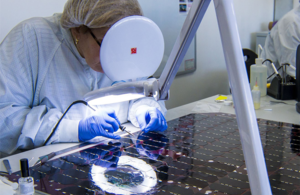World leaders have pledged US$ 8.8 billion for Gavi, the Vaccine Alliance, far exceeding the target of US$ 7.4 billion.
The funding will help immunise 300 million more children in lower-income countries against diseases like measles, polio and diphtheria by the end of 2025. It will also support health systems to withstand the impact of coronavirus and maintain the infrastructure necessary to roll out a future COVID-19 vaccine on a global scale.
The pledges were made at the Global Vaccine Summit 2020, hosted by UK Prime Minister Boris Johnson. Representatives from 52 countries, including 35 Heads leaders from global health organisations, the private sector, vaccine manufacturers and civil society organisations to support the Vaccine Alliance’s work protecting almost half the world’s children against deadly, preventable diseases.
Boris Johnson, UK Prime Minister, said:
Britain has been honoured to host this summit today. You can count on our full contribution as together we rise to fulfil the greatest shared endeavour of our lifetime – the triumph of humanity over disease, now and for the generations that follow.
As we make the choice to unite and forge a path of global co-operation, let us also renew our collective resolve to find the vaccine that can defeat coronavirus.
British High Commissioner to Kenya, Jane Marriott said:
GAVI has been operating for over 20 years having vaccinated over 700 million children across the world and Kenya is one of the top 20 priority countries. I’m proud of the UK’s long history of working with Kenya on vaccines.
If you’re in Kenya and have received a measles, pneuomonia or HPV vaccine, that has been through GAVI with UK support. This work is essential if we are to avoid further disease outbreaks and epidemics which would place additional strain on health systems already weakened by coronavirus.
The UK remains the Vaccine Alliance’s largest donor, pledging the equivalent of £330 million per year over the next five years. Other top donors include the Bill and Melinda Gates Foundation, Norway, Germany and the United States. Eight countries made their first ever pledge to Gavi, including Bhutan, Burkina Faso, Cameroon, Finland, Greece, New Zealand, Portugal and Uganda.
As well as supporting the routine vaccination of hundreds of millions of children in lower-income countries from infectious diseases, the new support will also be used to help lower-income countries meet the challenge of the coronavirus pandemic by strengthening health systems and vaccine distribution.
The Global Vaccine Summit also saw the launch of the Advance Market Commitment for COVID-19 Vaccines (COVAX AMC), a new innovative financing instrument to provide access to COVID-19 vaccines for low- and middle-income countries. This is the first building block towards a global mechanism to ensure equitable access to future COVID-19 vaccines.
Notes to editors:
-
The summit was attended by Australia, Canada, China, European Commission, Italy, Ireland, Japan, Luxembourg, Monaco, France, Netherlands, Norway, New Zealand, Qatar, Sweden, Switzerland, Spain, Turkey, USA, India, Denmark, Germany, Greece, Portugal, Finland, Iceland, Kuwait, Russia, Saudi Arabia, South Korea, UAE, Vietnam, Bangladesh, Bhutan, Central African Republic, Ethiopia, Kenya, Mozambique, Niger, Rwanda, Senegal, Sri Lanka, Somalia, Ghana, Afghanistan, Brazil, Burkina Faso, Uganda, Liberia, Egypt, Jordan, Singapore, Nepal, Sierra Leone, Georgia, Yemen, Myanmar, Cameroon, Zimbabwe, Zambia, Mauritania, Indonesia, Papua New Guinea, Pakistan, Chad, Mexico, Tanzania, South Africa and Argentina.
-
The new AMC builds on the success of the first Advance Market Commitment for Pneumococcal Conjugate Vaccines (PCV), which prevent the leading cause of pneumonia. In the 11 years since the AMC’s launch it has helped protect more than 225 million children across 60 low and lower-middle income countries, saving more than 700,000 lives. Current AMC donors Italy, UK, Norway, Canada and the Bill and Melinda Gates Foundation will be among the sponsors of the new COVAX AMC.
-
About Gavi, the Vaccine Alliance: Gavi, the Vaccine Alliance is a public-private partnership that helps vaccinate half the world’s children against some of the world’s deadliest diseases. Since its inception in 2000, Gavi has helped to immunise a whole generation – over 760 million children – and prevented more than 13 million deaths, helping to halve child mortality in 73 developing countries. Gavi also plays a key role in improving global health security by supporting health systems as well as funding global stockpiles for Ebola, cholera, meningitis and yellow fever vaccines. After two decades of progress, Gavi is now focused on protecting the next generation and reaching the unvaccinated children still being left behind, employing innovative finance and the latest technology – from drones to biometrics – to save millions more lives, prevent outbreaks before they can spread and help countries on the road to self-sufficiency. Learn more at www.gavi.org and connect with us on Facebook and Twitter.
The Vaccine Alliance brings together developing country and donor governments, the World Health Organization, UNICEF, the World Bank, the vaccine industry, technical agencies, civil society, the Bill & Melinda Gates Foundation and other private sector partners. View the full list of donor governments and other leading organizations that fund Gavi’s work here.


